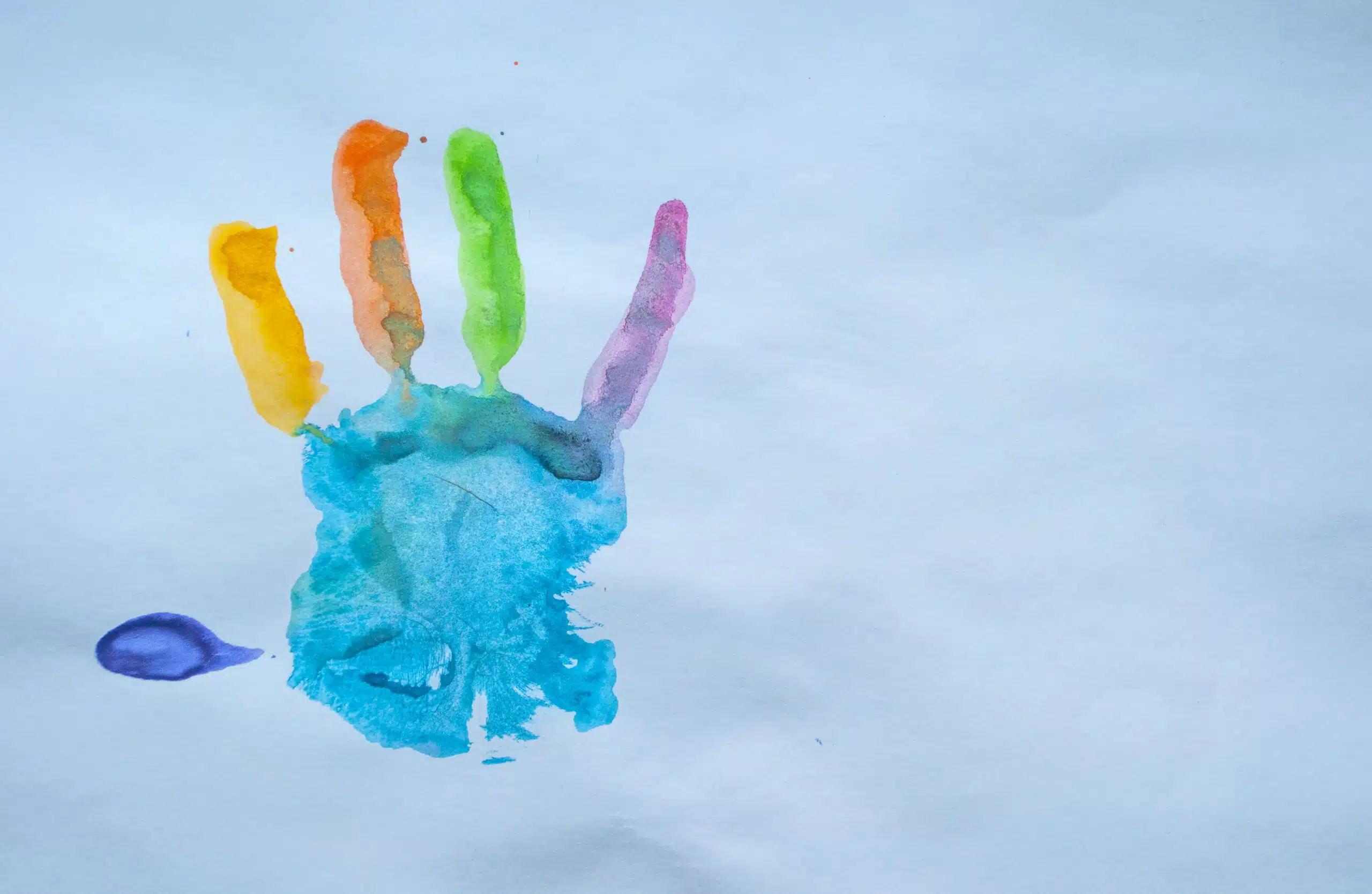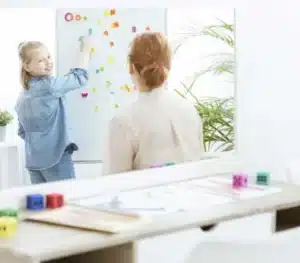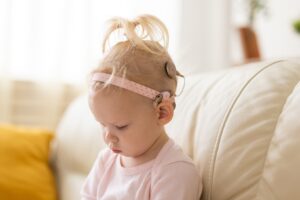By Madison Gwizdalski MS-CCC, SLP
In 2021, the CDC reported that approximately 1 in 44 children in the U.S. is diagnosed with an autism spectrum disorder (ASD), according to 2018 data. This data indicated that most children were still being diagnosed after age 4, but that autism could be reliably diagnosed around age 2!
You might think that age 2 seems early for a diagnosis, but early diagnosis is important! Early diagnoses lead to early intervention… which provides families with the skills, time, and opportunity to support development in areas that might be identified as delayed or different.
There are a lot of misconceptions about Autism these days. In fact, many people have ideas of what Autism looks like, and are surprised to find out that it is really different than what they originally believed!
Some preconceived notions about autism include:
- Non-speaking or limited verbal language
- Anti-social
- Variety of stereotypical behaviors: stimming, “stubborn”, lining up toys, etc.
This is just… simply not true! Dr. Stephen Shore emphasized the great diversity in what autism looks like when he said, ““If you’ve met one person with autism, you’ve met one person with autism.” Autism looks very different from person to person, with most people presenting with a range of strengths and weaknesses that change with time (which is true even for allistic, or non-autistic, people!).
Here’s the truth about autism:
- There is a WIDE RANGE of communication abilities: some children will be highly verbal with extensive vocabularies; others may rely on an AAC device or be non-speaking
- People with autism have a WIDE RANGE of social preferences: they may have preferred people, may be socially motivated, may be overly social, or may prefer to be alone
- It presents differently in each individual: some may have stereotyped behaviors, some may not! May have specific interests, differently play behaviors, or preferences in routines
Looking at this, we can see why Stuart Duncan, a father of an autistic boy, said “Autism is one word attempting to describe millions of different stories.” No child with autism is exactly the same.
That being said… there are some core characteristics that we look for in autism! These characteristics, again, may vary or look different from child to child.
- Differences in communication
- Differences in socialization
- Differences in interests and routines
Let’s break these down even more! Andi Putt of https://www.mrsspeechiep.com/ , a speech pathologist and neurodivergent individual, gives us some great examples of how these core characteristics may present.
What could be included in differences in communication?
- Delays in verbal and non-verbal language (gestures, pointing)
- Language regression
- Echolalia or scripting, more than expected, beyond age 3
- Limited ability to use language for a variety of reasons (may be great at labeling, but not be able to make requests)
- Using another person’s body as a tool (such as hand leading)
- Differences in prosody or pitch
Differences in socialization?
- Eye contact: may be fleeting, inconsistent, or intense
- Decreased responsiveness to names
- Preference to be alone
- Limited joint attention and reciprocal communication
- Difficulty initiating interactions, even if they are a strong responder!
- Difficulty understanding and expressing emotions
- Can be overfriendly, even to strangers
- Difficulty holding conversations
- May prefer to watch rather than join in play
Differences in interests and routines?
- May prefer sameness and dislike changes in routines
- Repetitive play schemes, or playing in the same way with toys (filling and dumping, lining up, crashing, stacking)
- Play may be viewed as unusual, and may have delays/differences in creative and functional play
- Has preferred topics, interests, or toys
- Attention to details, and notices small differences in their environment, routines, etc.
- Sensory differences
If you find yourself thinking that your child presents with some of these differences, an autism evaluation is a great idea! Evaluations can help parents, caregivers, and teachers learn more about how to support the learning and development of children who have autism. Although getting a diagnosis can feel scary, it in no way means that your child will not learn, progress, and live a happy life! What it may do is open the doors to therapies and treatments that can benefit your child, such as speech therapy and more.




